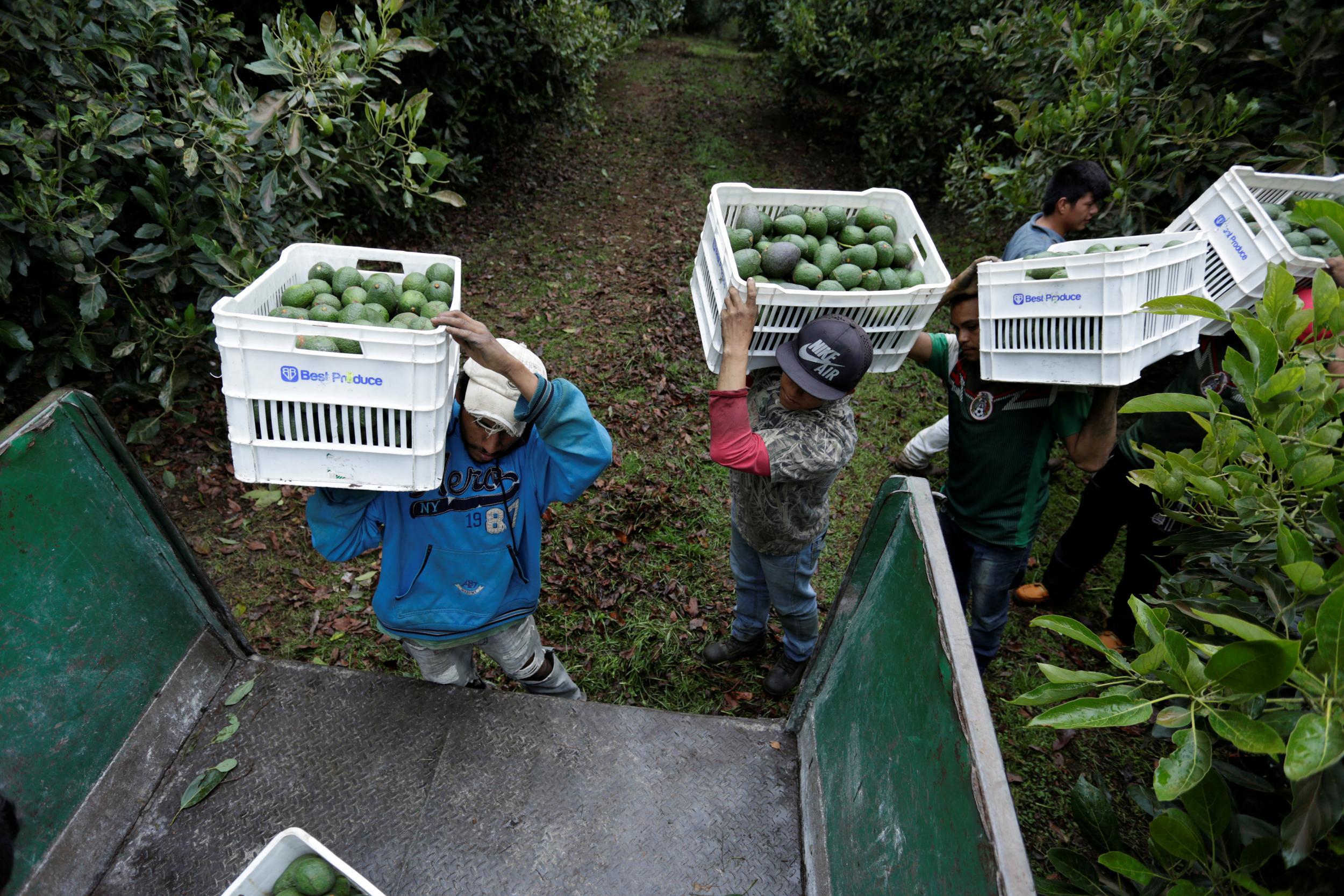EU agrees new trade deal with Mexico as Brexit looms
UK is hoping to piggy-back on EU deals after Brexit

Mexico and the European Union have agreed a new trade deal that virtually eliminates tariffs between the two blocs, as Europe forges ahead with setting up new trade links around the world ahead of Brexit.
The deal, inked at the weekend, took two years to negotiate and eliminates tariffs practically across the board, including the agriculture.
The British government has staked its economic fortunes on negotiating new free trade deals around the world, but also hopes to piggy-back on the dozens of deals already signed by the EU which the UK currently benefits from. Liam Fox, the UK trade secretary, visited Mexico in July last year, stating that he hoped to “replicate” the then pending EU deal for Britain after it leaves the bloc.
The latest agreement also gives some clues to the requirements the EU could impose on Britain when Theresa May seeks to negotiate a free trade agreement with the bloc after Brexit.
The Mexican government has agreed to recognise 240 “geographical indications” – regional products protected by EU rules like Champagne – and ban Mexican imitations from using the same names. The UK government has been resisting signing up to such rules, with a view to signing a deal with the US, which regards them as protectionism.
The deal also includes a passage on financial services, but provisions are based on the idea of “equivalence” which City of London bosses have said would be insufficient for UK firms because it can be revoked by the EU at any time if rules are not deemed to meet European standards.
In less than two years the EU and Mexico have delivered a deal fit for the economic and political challenges of the 21st century
“Trade can and should be a win-win process and today's agreement shows just that,” European Commission President Jean-Claude Juncker said.
“Mexico and the EU worked together and reached a mutually beneficial outcome. We did it as partners who are willing to discuss, to defend their interests while at the same time being willing to compromise to meet each other's expectations. With this agreement, Mexico joins Canada, Japan and Singapore in the growing list of partners willing to work with the EU in defending open, fair and rules-based trade.”
Cecilia Malmström, the EU’s trade commissioner added: “In less than two years the EU and Mexico have delivered a deal fit for the economic and political challenges of the 21st century.

“We now open a new chapter in our long and fruitful relationship, boosting trade and creating jobs. Today's agreement also sends a strong message to other partners that it is possible to modernise existing trade relations when both partners share a clear belief in the merits of openness, and of free and fair trade.”
The deal also opens up Mexican government procurement to EU companies, and slashes tariffs on European goods such as pasta, pork, cheese, chocolate, and milk powder. A previous trade deal signed 21 years ago mostly covers industrial goods.

Mexico is expected to get better access for products including orange juice, tuna, asparagus, honey, egg white albumin, and meats.
“It needed to be more ambitious in the agricultural sector, it needed to be more ambitious in services, it needed to be more ambitious in many of the elements that in the end we managed to agree on after two years of work,” Mexican Economy Minister Ildefonso Guajardo said.
EU officials said earlier this year that the bloc should accelerate talks with Mexico, among other countries, in response to threats by Donald Trump to impose tariffs on EU goods. Mexico’s government is also pursuing the deal under the pretext of diversifying the country’s trade away from the US, which is taking an increasingly hard protectionist line under the right-wing president.
The trade deal must now be translated into legal text and signed off by the European Council and European Parliament.
Join our commenting forum
Join thought-provoking conversations, follow other Independent readers and see their replies
Comments
Bookmark popover
Removed from bookmarks